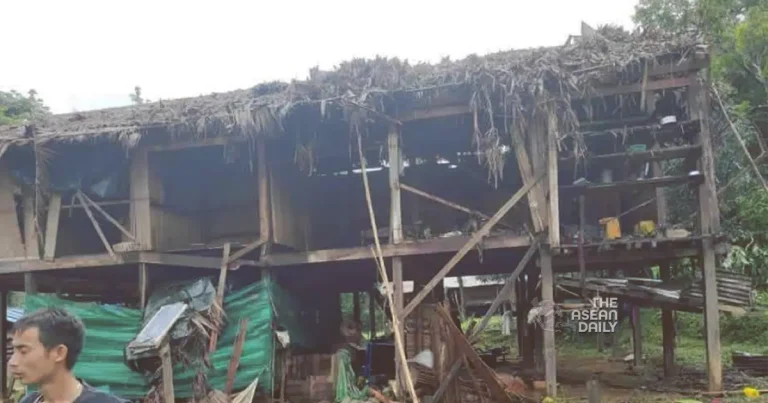27-9-2023 (YANGON) Myanmar’s military has significantly escalated its campaign of mass killings, air strikes, and artillery bombardments over the past year as it intensifies its efforts to suppress resistance against its coup, the United Nations’ human rights office reported on Tuesday (September 26).
The military’s ousting of Aung San Suu Kyi’s government in 2021 triggered widespread opposition, and it is currently engaged in fierce battles against opponents throughout various regions of the country.
According to the latest report from the Office of the High Commissioner for Human Rights (OHCHR), a “seemingly endless spiral of military violence” has been observed between April 2022 and July 2023. The OHCHR, through interviews and open-source data, discovered a “sharp increase” in grave human rights violations, including a rise in incidents involving the killing of 10 or more individuals.
The report stated that investigators had now documented 22 cases of mass killings involving 10 or more people, as confirmed by rights chief Volker Turk.
Notable incidents highlighted by the OHCHR include an air strike on a gathering in an opposition stronghold village last April that resulted in the deaths of approximately 150 people. Another was the bombing of a rebel-held concert in northern Kachin state last October, which claimed the lives of dozens.
The OHCHR also noted instances where soldiers repeatedly committed rape and extrajudicial killings of men, women, and children in villages suspected of harboring or supporting anti-coup fighters. In some cases, troops displayed “beheaded or otherwise desecrated corpses” to instill terror in the local population, echoing accounts reported by local media and conflict monitoring groups.
The military also employed a “four cuts” strategy by burning nearly 24,000 houses and buildings since the start of 2023 to deny its opponents access to food, funds, intelligence, and recruits.
It is worth noting that the junta has consistently denied media reports and eyewitness accounts of village burnings, instead attributing them to anti-coup “terrorists.”
The military’s extensive crackdown on dissent has led to the arrest of over 24,000 individuals, according to a local monitoring group. The OHCHR has been regularly receiving reports of torture, sexual violence, and deaths within prisons or during prisoner transfers.
The report also acknowledged that anti-coup fighters have been involved in rights violations, including targeted killings of civilians linked to the junta. However, it emphasized that the scale and intensity of these violations could not be compared to those committed by the military.
Diplomatic efforts to resolve the conflict, led by the United Nations and the Association of Southeast Asian Nations regional bloc, have hit an impasse, with the military refusing to engage with its adversaries.




